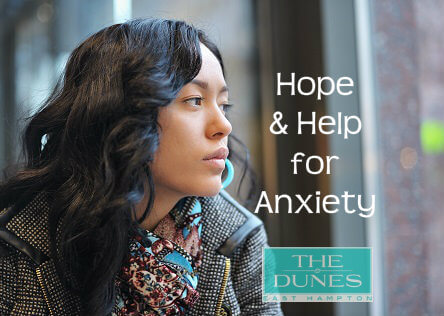Anxiety disorders are types of mental illness which make the affected person feel overly frightened, uneasy or distressed in situations which would not make most other people experience that same level of heightened discomfort. If the affected person does not receive appropriate mental health treatment, he or she may have difficulty with going to work or school, or in personal relationships.
In very severe cases, the anxiety may escalate to a level where everyday activities like going outside or to the store may be exceedingly difficult. The anxiety disorder can cause a person to have low self-esteem and may lead to substance abuse.
Common Types Of Anxiety Disorders
Post-traumatic Stress Disorder (PTSD) – Can occur when a person either witnesses or experiences a traumatic event, such as violent crime, abuse, a natural disaster, or a major accident. It is normal to feel on edge for some time after the initial event, but some people never revert back to feeling calm and in turn have nightmares, feel angry or irritable, and have flashbacks when they see something that reminds them of the initial event.
- Panic Disorder – Causes people to undergo panic attacks which can feel very much like a heart attack. Physical symptoms of chest pain, shortness of breath, heart palpitations, upset stomach, and disconnection can strike without warning. The person may feel as though they are dying. These episodes can be embarrassing and make the affected person feel self-conscious, especially if they occur in public. Some people become so afraid that they might have a panic attack that they are afraid to go back into certain places where an attack has occurred.
- Generalized Anxiety Disorder – A severe, chronic issue with worrying about everyday things. It lasts for at least six months and affects people to the extent that they find it difficult to carry out their everyday activities. For some people, the worrying affects them for several hours each day. They may anticipate the worst in every situation and experience physical symptoms, such as headaches, nausea, fatigue and tension.
Anxiety Disorders And Substance Abuse
People who have issues with anxiety are more likely to turn to alcohol or drugs as a way to manage or numb their symptoms. This type of self-medication is not uncommon, but while those with anxiety may feel better while under the influence, drugs and alcohol actually start to change neurotransmitters in the brain, making any mental health condition worse and even harder to overcome. It also starts the user on a cycle where they continue to use more often and/or in larger amounts to try to achieve symptom relief.
Co-Occurring Mental Health Treatment
Anxiety is highly treatable. We here at The Dunes East Hampton are always monitoring our clients’ mental health status and provide effective and individualized co-occurring mental health treatment which includes, but is not limited to:
- supportive psychotherapy
- individual counseling
- pharmacotherapy
- aerobic exercise
Cognitive Behavioral Therapy (CBT) helps, too, since it helps change the negative ways a person thinks and their behavior follows suit.
The Dunes East Hampton provides treatment for clients who are wrestling with an anxiety disorder as part of the care offered.
Contact Us To Start Your New Beginning Today!


 Post-traumatic Stress Disorder (PTSD) – Can occur when a person either witnesses or experiences a traumatic event, such as violent crime, abuse, a natural disaster, or a major accident. It is normal to feel on edge for some time after the initial event, but some people never revert back to feeling calm and in turn have nightmares, feel angry or irritable, and have flashbacks when they see something that reminds them of the initial event.
Post-traumatic Stress Disorder (PTSD) – Can occur when a person either witnesses or experiences a traumatic event, such as violent crime, abuse, a natural disaster, or a major accident. It is normal to feel on edge for some time after the initial event, but some people never revert back to feeling calm and in turn have nightmares, feel angry or irritable, and have flashbacks when they see something that reminds them of the initial event.




